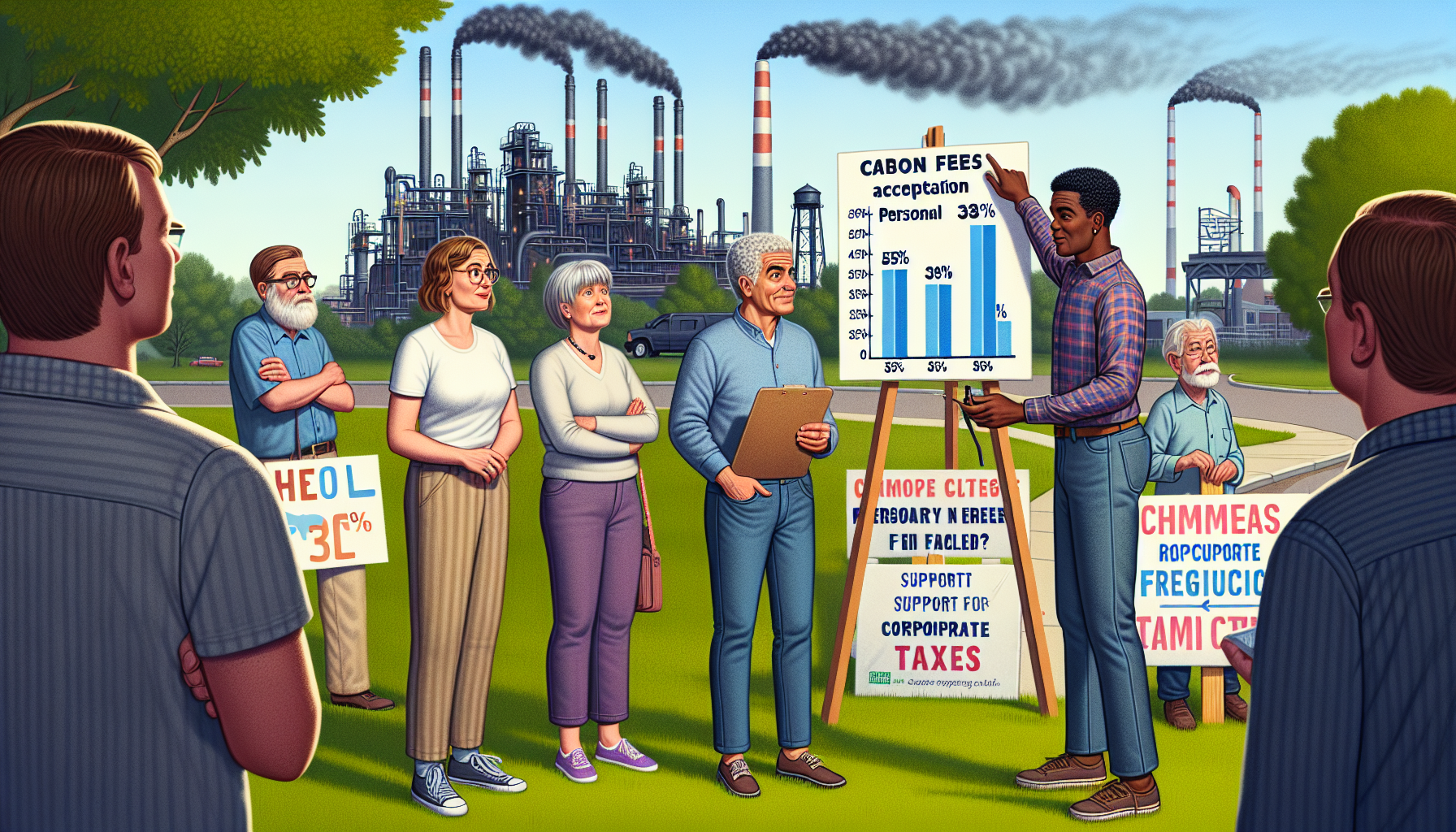Americans’ willingness to pay a personal carbon fee remains modest: an AP-NORC/EPIC survey in 2023 found 38% would pay $1 per month, down from 52% in 2021, while a 2024 follow-up shows continued reluctance at higher amounts and broader support for taxing corporate emissions.
The Associated Press-NORC Center for Public Affairs Research and the Energy Policy Institute at the University of Chicago (EPIC) reported in an April 11, 2023 release that 38% of U.S. adults would support paying a $1 monthly carbon fee on their household energy use, a decline of 14 percentage points from 52% in 2021. Support falls as the fee rises: roughly three in ten would pay $10, $20, or $40 per month, and about one in five would pay $75 or $100. (epic.uchicago.edu)
Newer AP-NORC/EPIC polling in 2024 finds the public still balks at higher personal fees, but shows greater support for making companies pay. In that survey, 58% said they support a tax that companies must pay on the carbon they emit. By comparison, willingness to pay larger monthly household fees remained markedly lower. (apnorc.org)
The 2024 poll also asked who bears responsibility for addressing climate change. Majorities said corporations and industry (62%) and the U.S. federal government (59%) have a great deal or a lot of responsibility. Far fewer—41%—said the same of individual people. In 2019, half of Americans (50%) assigned a great deal or a lot of responsibility to individuals, indicating a measurable decline over time. (apnorc.org)
Context from the same polling series helps explain shifting views. After dipping in 2023, the share of Americans who say climate change (for those who believe it is happening) is caused mostly or entirely by human activities rebounded to 54% in 2024, up from 49% in 2023. (apnorc.org)
The debate has played out alongside prominent political rhetoric. In 2019, Rep. Alexandria Ocasio-Cortez (D‑N.Y.) warned at an MLK Day event that “the world is going to end in 12 years if we don’t address climate change,” a line that drew widespread attention and subsequent pushback from scientists who objected to the framing. (realclearpolitics.com) That same year, then–presidential candidate Kamala Harris unveiled a climate platform built around $10 trillion in public and private investment over a decade. (cnbc.com)
Taken together, the AP-NORC/EPIC findings point to a persistent gap between acknowledging climate risks and accepting new personal costs to address them, even as many Americans favor policies that hold corporations and government more accountable. (apnorc.org)

